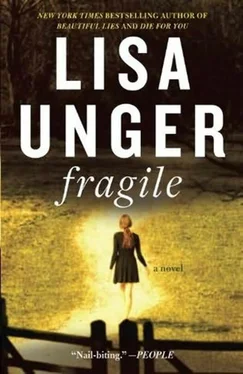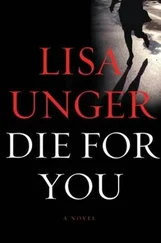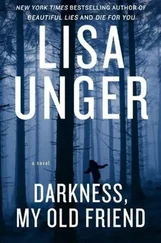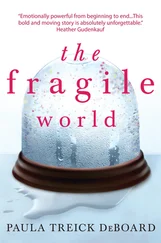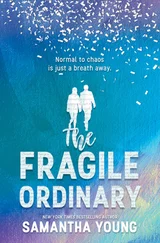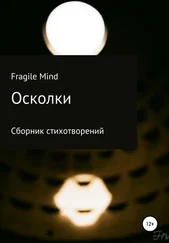She shook her head, took a deep breath. “They’re looking for her. If something’s happened, they’ll find out.”
He nodded uncertainly, then shifted the car into reverse. She stepped back, stuck her hands into the pockets of her jeans. She hadn’t changed her clothes since she got dressed last night. She’d canceled all her patients today, trying to do what she could for Melody and for Jones.
“I love her, Mom.” In the split second before he completed the sentence, she thought he was going to say I love you, Mom . She felt that familiar rise of happiness, and then the fall of disappointment. It seemed like forever since he’d said that. I love you sooo much, Mommy , he used to say, offering exuberant embraces, unembarrassed kisses.
“I know you do, sweetie. I know. It’s going to be okay. You’ll see.”
It was a false assurance, and they both knew it. But he smiled at her just the same. She watched him drive off until his taillights disappeared around the corner. She felt the urge to cry, but she fought it back. No time for that.
Back in her office, she sorted through voice messages and e-mails, many of them asking about or related to Charlene. News had spread like a cold virus. There was an e-mail notice about a town meeting at eight, at the school, organized by Henry Ivy-to brainstorm about Charlene, where she might have gone, and organize information to help the police. Anyone who knows Charlene is urged to attend. That’s what she loved about Henry, he was always the first responder, getting people together to help when there was a crisis.
The local women’s club, too, had organized a search party; neighbors were walking the area around Charlene’s house, others were making calls. Any help is welcome, even just the forwarding of this e-mail message. The message contained the most recent school picture of Charlene.
Maggie remembered this about The Hollows, now that it was happening again. How those who had lived here generation after generation rallied in a crisis. Meetings were called, food was made, people reported for any task that might help. There was an invisible net that could be seen only when tears were shed.
It had been the same when Sarah was missing, years ago. Initially, she, too, was suspected to have run away, trying to punish her mother. But Maggie also remembered a strange energy, a dark current of knowing that something awful had happened. Even the next day, when the air was buzzing with a kind of excited, gossipy fear, much like today, there was something ugly hovering. Even Maggie and the other kids seem to sense that Sarah wasn’t just going to turn up, sheepish for having caused so much trouble.
They found Sarah’s body hours after the first snow of the season started to fall. The school was called to assembly, and Travis Crosby Sr., the Hollows police chief at the time, delivered the news in a soft, wobbling voice. Maggie remembered the heavy silence that fell, a collective hush of disbelief, and then the wailing started, first low and singular. Then a cacophony of weeping sounds, a chorus of pain.
She’d just felt gutted, numb. She hadn’t really known Sarah well, wasn’t sure how to feel other than afraid. She saw her mother up onstage and, unthinking, went to join her. Her mother took her in her arms, and they stood like that while Elizabeth told students to return to their homerooms, said that parents would be called and the counselors would organize in the cafeteria for anyone who needed to talk and to run a study hall for children whose parents couldn’t get away from work.
• • •
Maggie listened to her voice mail: her neurotic was calling to cancel his appointment for tomorrow because he was afraid it might rain (he didn’t think he was going to get away with that, did he?); a lawyer she knew needed a consult; her mother, who often confused her office number with her cell phone, was calling to find out what was happening with Charlene. Three more messages were hang-ups, something that always made her uneasy. During her residency at Columbia, a young woman she’d been seeing ended her life with a bottle of painkillers. When Maggie got to her office that morning, her machine was filled with messages, each just the sound of soft, measured breathing and then a sudden hang-up. Later that day, she learned about her patient’s suicide from the detective who was called to the scene. That breathing stayed with her; she thought of it as the sound of despair, of reaching out to find no one there. She heard it sometimes in her dreams.
Of course, that was in the days before everyone had a cell phone and caller ID. Her patients could reach her now if they needed her in the night. She could see who was calling and hanging up on her, make a proactive phone call in return. She scrolled through the numbers on the phone’s digital display. Unknown caller. A low agitation was setting in, that feeling she had when something, someone, she cared about was in crisis and she was powerless to help. Then, the phone in her hand started to ring. Unknown caller. She picked up quickly.
“Dr. Cooper,” she answered.
There was just silence on the line, a distant crackle. She took a wild guess. “Marshall? Is that you?”
“How did you know?” he asked, sounding young, frightened.
“I was hoping, Marshall. I’ve been concerned about you. How are you? Let’s talk.”
“I’m sorry,” he said. “For the way I acted yesterday.” She felt a wash of relief. He had come back; he still wanted help. She knew what to do here.
“I understand,” she said. “You’re under stress. There are better ways to cope, and we can work on that.”
“I just want to know something.”
“What’s that?”
“How do you know if you’re a good person? I mean, how do you know if you’re not ?”
She’d had this kind of existential conversation with him before. She answered him the way she always did.
“I don’t think anyone is only good or only bad, Marshall. People are multilayered with qualities and flaws.”
“Right,” he said quickly, almost sounding annoyed. “But some people are bad. They do bad things to other people. They hurt people.”
There was a lump of dread in her center. Who was he talking about?
“True,” she said carefully. “But even those people often have something that redeems them.” A silence followed, went on too long. She thought maybe he’d hung up. Then, “I’m not sure I believe in redemption.”
“Then what? We’re defined by our mistakes, our bad qualities? One false move and there’s no forgiveness?”
“It depends on what we’ve done, doesn’t it?”
“What are we talking about here, Marshall? Have you done something?”
His breathing came ragged, as though he was crying.
“Whatever it is, we can talk about it, work through it.”
“I have to go,” he said. “I’m sorry.”
And the line went dead.
“Marshall,” she said pointlessly. She quickly moved to her desk, looked up his number and called back, but the line was busy. She hung up and tried again. This time the line just rang and rang until she gave up.
She felt that familiar wash of anxiety again and thought of her mother. When she’d told Elizabeth that she wanted to be a psychologist, that she wanted to go on to graduate school for her doctorate in psychology and go into private practice, she hadn’t gotten the reaction she’d expected. Elizabeth had looked more worried than excited or proud. Maggie never forgot what she’d said, so surprised and disappointed had she been at the words.
“You can’t save the world, Magpie. You’ve been trying all your life, bringing home every stray and broken thing. Some things can’t be fixed.”
Maggie couldn’t remember now where they’d been. Maybe Telephone Bar on Second Avenue, her parents in for one of their frequent visits. Someplace in the city, she knew that. She remembered the smell of vinegar, the lightness she felt drinking red wine with her parents.
Читать дальше
